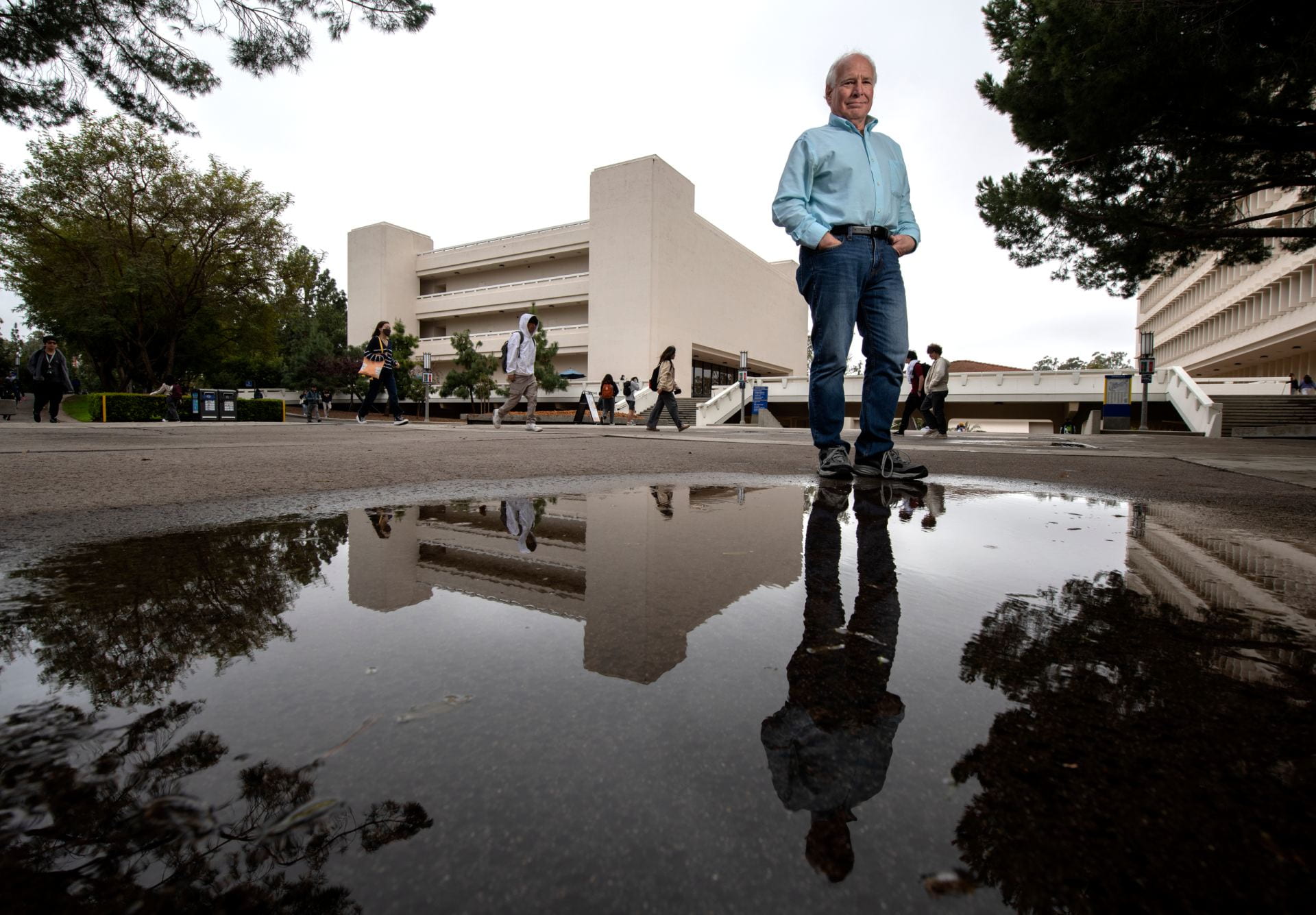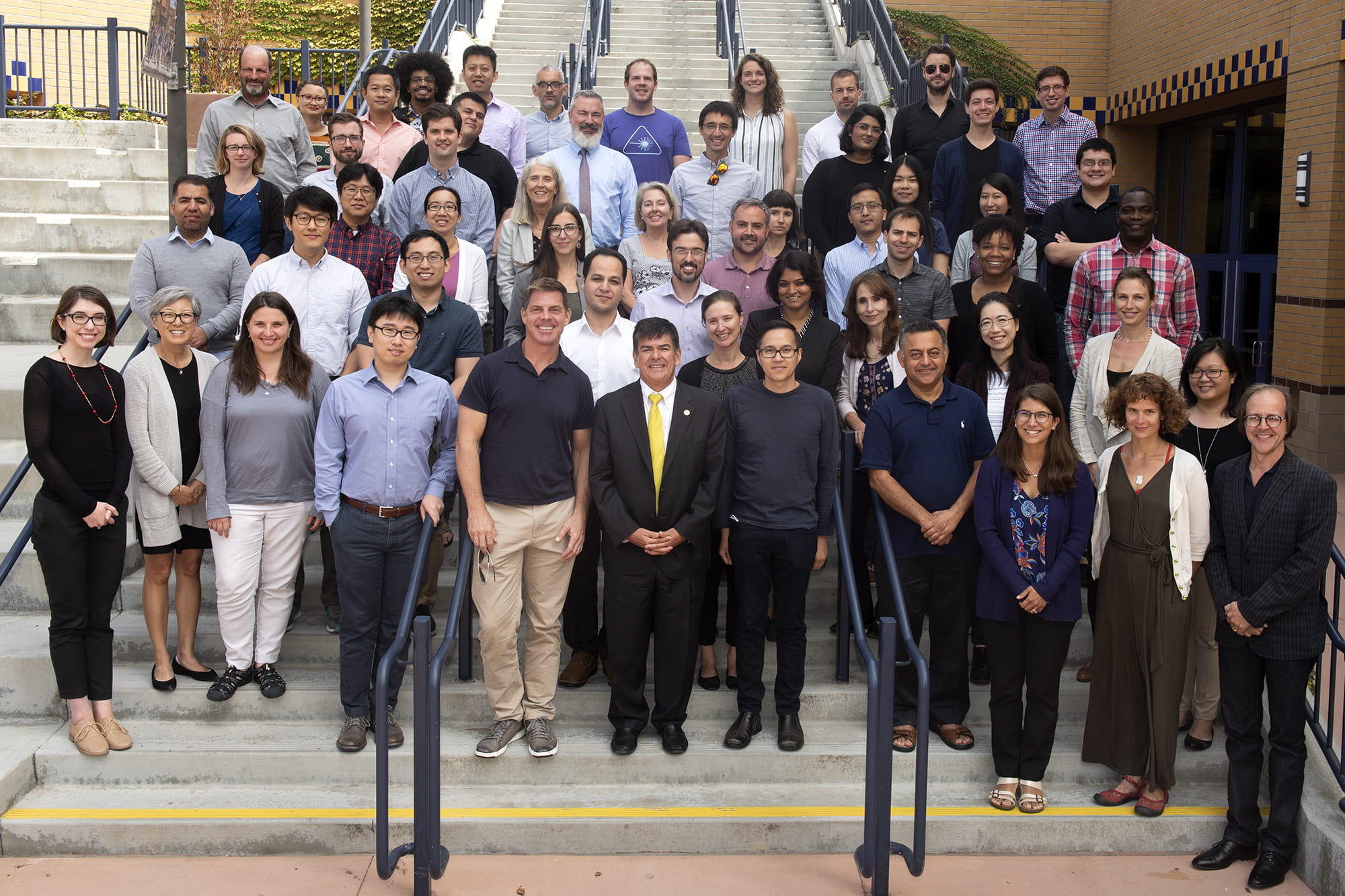Water warriors
UCI experts work to inform public policy and educate about California’s water future

Despite the recent series of atmospheric river storms that inundated California and more than tripled the Sierra Nevada’s vital snowpack, experts say that both the state and the region remain locked in a megadrought worse than anything the U.S. Southwest has seen in roughly a millennium. Unfortunately, this local crisis mirrors a global reality in which more than 40 percent of the world’s population will see increasing water shortages, while every day, almost 1,000 children die from preventable waterborne and sanitation-related diseases.
At UCI, a group of scholars is working to bridge the gap between scientific knowledge and public policy to help address this existential challenge to human survival. Water UCI aims to mobilize university experts in a variety of academic fields to not only conduct crucial research but provide educational and outreach programs, foster workforce development, and advance policy solutions to critical water problems facing the state, the nation and the world.
Not surprisingly, however, a major portion of Water UCI’s mission involves addressing California’s drought and other water challenges. For the past few years, says Water UCI director David Feldman, professor of urban planning and public policy and political science, the group has worked to connect the water industry, government agencies, nongovernmental organizations and K-12 schools with the vast resources of UCI and the UC system in order to both educate the public and craft practical policy responses to the state’s water crisis.
“In May 2022, we completed a project for Gov. Newsom’s natural resources cabinet called the California Water Resilience Portfolio,” Feldman says. “This project represents the Newsom administration’s effort to face up to the fact that California’s water future is precarious.”
In compiling the data, Water UCI sought ideas from experts and regular citizens throughout the state. “A lot of the comments were contradictory,” Feldman notes. “Some would say we give too much water to farmers; some would say we care too much about fish.”
Following that, he says, Water UCI produced a stakeholder report that includes three main recommendations. First, California’s water agency needs to improve its ability to track how climate change will affect water supply. “It’s still too much of an unknown factor,” Feldman says. “We know it will lead to less water, but in some areas, there will be more water. So exactly what are the impacts on rivers, agricultural areas and cities? That needs to be laid out.”
The second priority for California proposed by Water UCI is including a mission of environmental justice in the state’s water policy. “For too long, decisions over California’s water have been made in a top-down fashion, and the rights of tribal nations and underrepresented groups have been ignored,” Feldman says. “There needs to be a conscious effort to incorporate that into our water solutions, and we provide specific examples of how that needs to be done.”
The third recommendation, he says, is that California’s residents be educated about the issue: “We can’t solve anything without the public understanding the gravity of the challenges facing the state’s water future.”
One of the water experts assisting Feldman is Nicola Ulibarri, UCI associate professor of urban planning and public policy. She studies how government agencies in California are reacting to the drought and whether those programs are working. Her research also explores water-related projects in other states and countries, including China, and asks whether California can learn anything from those strategies.
“My work is to ask questions about policies and regulations around water management and water government,” Ulibarri says. “What are we doing to manage drought? What organizations are responsible, and how are they making decisions? Are they using good science, and is what they’re recommending implementable? Based on gaps I identify, I come up with ideas on what we can do to manage drought more equitably.”
Aside from drought, Water UCI is also tackling the issue of water quality. In Orange County and the Inland Empire, the group has already crafted an agreement with nine water agencies to research water contaminants known as per- and polyfluoroalkyl substances that are created by chemicals used in nonstick cookware, waterproof garments, furniture, upholstery, firefighting foam and other products.
“Even in very small concentrations measured as parts per trillion, they’re considered to be a health concern, and we know there are PFAS in our water supply and even our groundwater basin,” Feldman explains. “The water agencies have asked us to do this, so we’re studying it and trying to determine what’s happening. One of the things we’re going to provide is guidance for how people might engage in sampling measures to determine how much of these chemicals are getting into the water supply.”
On the public education front, Water UCI has organized a colloquium series called Speaking of Water that draws both national and international experts to address specific challenges in water policy. “Being part of a great public university, we really feel that it’s integral to our mission to do not only research but also outreach,” Feldman says. “We’re lucky that our community partners have been so supportive.”
If you want to learn more about supporting this or other activities at UCI, please visit the Brilliant Future website at https://brilliantfuture.uci.edu. Publicly launched on Oct. 4, 2019, the Brilliant Future campaign aims to raise awareness and support for UCI. The School of Social Ecology plays a vital role in the success of the campaign. Learn more by visiting https://brilliantfuture.uci.edu/uci-school-of-social-ecology/.


